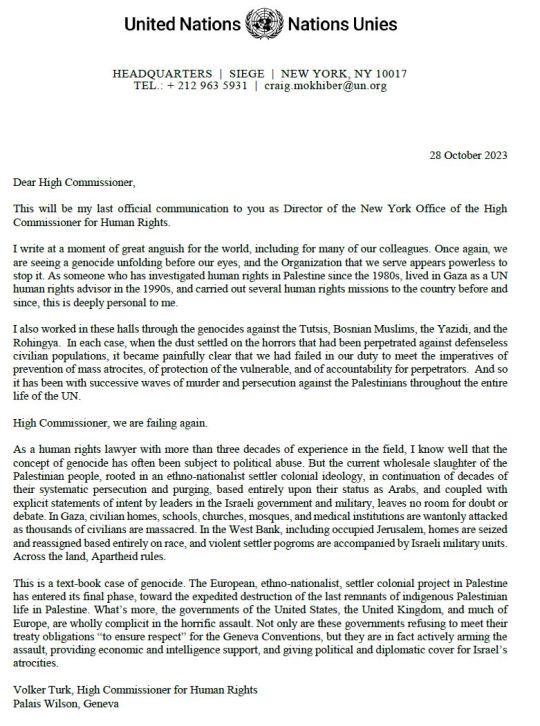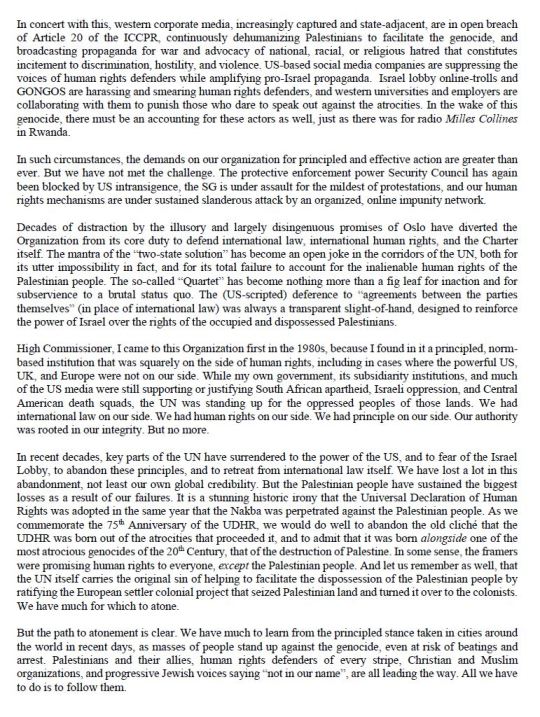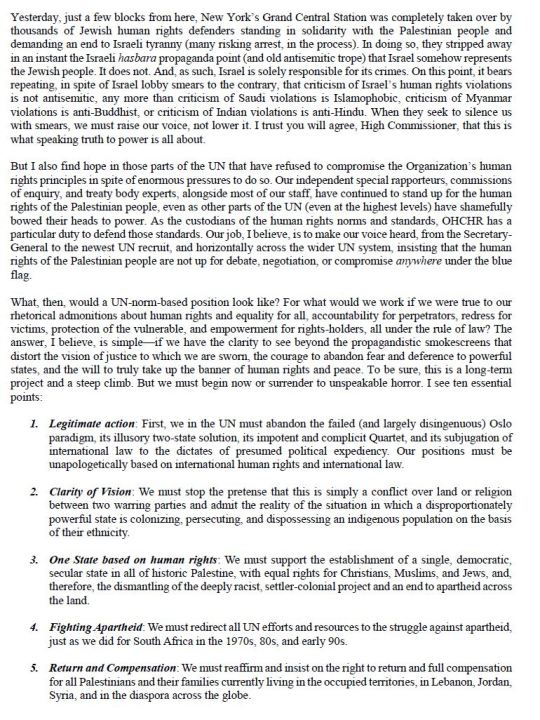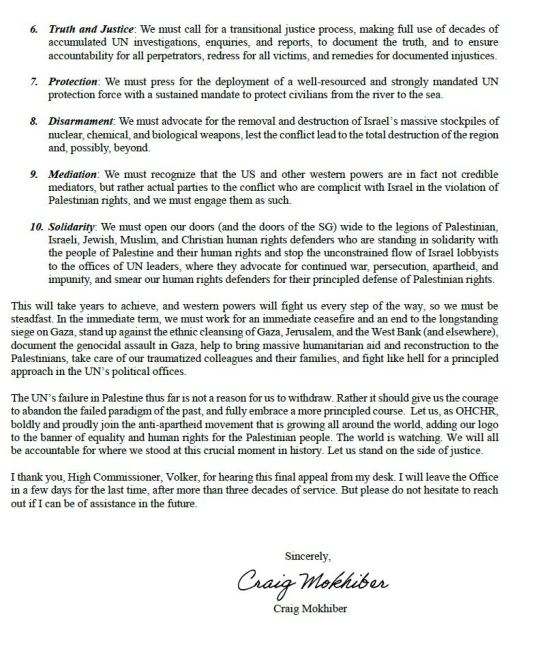#discrimination and harassment lawyers
Explore tagged Tumblr posts
Text
Discrimination and Harassment Lawyers

Knol Law’s discrimination and harassment lawyers offer expert legal representation for workplace bias cases. They specialize in tackling discrimination, harassment, and workplace inequality, ensuring clients receive justice. Trust Knol Law to fight for fair treatment, equal opportunities, and rightful compensation.
0 notes
Text
Top Discrimination and Harassment Lawyers in California

Knol Law specializes in workplace justice with expert discrimination and harassment lawyers. The firm represents victims of workplace bias, offering strong legal support to fight discrimination and harassment. With years of experience, Knol Law ensures clients achieve justice and rightful compensation. Protect your rights with trusted legal representation that fights for fair treatment and workplace equality.
0 notes
Text
What is Constructive Dismissal?
In the state of California, the terms constructive discharge, constructive dismissal, or constructive termination are used to refer to situations where an employer has intentionally created or allowed a hostile work environment that is so toxic and intolerable for an employee that they are forced to quit.
Wrongful constructive termination refers to situations where the reasons behind the dismissal would be grounds for a wrongful termination claim under California state law if the employer had fired them directly. As with a standard wrongful termination case, wrongful constructive termination may be based on the applicable exceptions to California’s at-will employment laws.
Some situations that may not warrant but can contribute to a constructive termination claim include:
Severely reduced hours
Increased workload with no assistance
Unaddressed harassment from coworkers
Being consistently unduly reprimanded
Wrongful Constructive Dismissal Laws in California
The purpose of wrongful constructive termination law is to protect an employee’s right to sue for wrongful termination in the event that they were forced to quit rather than having been fired.
It is not enough just to claim wrongful constructive termination. The employee must prove two things:
The employer committed an act of workplace retaliation by intentionally creating or allowing the creation of working conditions that were intolerable enough as to cause the employee to have no other choice than to quit.
The employer did not have the right to terminate the employee, and if they had, the employee would have been able to file a valid wrongful termination claim against them.
In California, if an employee is not part of a union, the employment relationship is considered at-will by default, though there may also be specific terms in their employment contract that verify it. This means that the employer does not have to give reason or notice in order to terminate an employee. They also may create or encourage hostile working conditions in general.
There are, however, some exceptions to this standard that may allow for an employee to claim wrongful constructive dismissal.
How is Constructive Dismissal Defined?
According to California state law, there are three factors in determining constructive dismissal:
The employer intentionally created or knowingly permitted certain conditions.
The conditions were so intolerable that the employee felt forced to quit.
The employer should have reasonably known that the conditions would force a reasonable employee to quit.
There are many methods an employer may use to force someone to resign such as discrimination, harassment, and intimidation. However, if the working conditions were merely bad, but not completely intolerable, it is not enough to claim constructive termination. There are many ways that an employer may make things difficult for an employee that individually do not constitute intolerable conditions such as:
Reduced hours or unsavory shifts
Reduced pay or demotions
Transfers and reassignments
Unfair reprimands and evaluations
Rude coworkers and supervisors
It is also not enough that intolerable conditions existed. The employer must have been aware and either intentionally created them, or knowingly permitted them to occur. The point of a constructive dismissal is that an employer has terminated an employee by forcing them to quit.
Although California is an at-will employment state, employers are still prohibited from discriminating against their employees. An employee can not be terminated due to being a part of any of the following protected classes:
Age
Disability
Gender/Sex
Pregnancy
Race
Religion
Sexual Orientation
They are also protected from retaliation in the event of:
Whistle Blowing
Sexual harassment complaints
Taking protected leave
If an employer fired an employee due to one of these reasons, that employee may have the right to claim wrongful termination. But if they resign, they lose that right. This can be a factor in an employer deciding to force a resignation rather than issue a termination.
Constructive Dismissal Examples in California
There have been many instances where an employee has believed that they were constructively terminated, but the court held that the conditions were not enough to qualify such as:
The presence of a workplace violation
A single isolated incident of discrimination
A demotion due to a poor evaluation
Being changed from full time to part time
A change in pay or bonuses
Job duties not being what the employee expected
The employee personally believing they should be paid more
Some examples of instances where the courts agreed that conditions may qualify as constructive termination include:
An employer failing to reimburse their employee for business expenses to the point that the employee was unable to cover their own cost of living
Consistent ongoing patterns of discriminatory behavior due to age, race, or sex
Excessive and aggressive verbal harassment in a hostile work environment
Physical threats and harassment including job performance sabotage
A well performing employee suddenly singled out and being subjected to harsh reprimands, inaccurate poor performance reviews, and verbal harassment
Why Do Employers Want Employees to Quit vs Firing Them?
When an employee resigns, they lose some of the rights they would have had if they had been fired, including but not limited to:
Unemployment benefit eligibility
Increased damages for discrimination or retaliation claims
The right to sue for wrongful termination
In order to avoid having a former employee exercise any of these rights, an employer may try to force them to quit rather than firing them directly. In those situations, the concept of constructive termination allows for an employee to regain their rights. It also prevents employers from circumventing clauses in employment contracts that demand any termination have a reasonable motive.
What Should I Do if I’m Being Forced to Quit?
Before resigning, an employee who believes they are being forced out should speak with an employment lawyer. There is no guarantee that the details of their situation will qualify as a constructive termination, and if not, resigning will forfeit their right to sue. It is better to get legal advice from an experienced employment attorney before making any major decisions.
In the event that the employee had resigned already, they will need to know what their options are, what rights they have, and if they have a case for wrongful constructive termination.
What if an Individual Stays Employed Rather Than Being Forced to Quit?
An employee can only claim constructive termination after they have been forced to resign, not before. Though staying at a job under intolerable conditions does not necessarily count against a later claim. It is reasonably understood that a person may have no choice but to stay in such an environment to the detriment of their own wellbeing. It is also acceptably common for an employee to make attempts to improve their situation before resorting to resignation. However, while remaining at a job under intolerable conditions may not automatically negate a constructive termination claim, the longer an employee stays, the more difficult it may be to prove that the conditions were in fact intolerable.
Do I Have a Wrongful Termination Claim if I Was Forced to Quit?
In order to claim wrongful constructive termination, the employee must prove that the termination was in fact wrongful. There are many types of wrongful dismissal that include being terminated for:
Breach of contract
Public policy violations
Retaliation for whistleblowing
Retaliation for filing a complaint
Retaliation for filing a workers compensation claim
Requesting medical accommodations
These things constitute a wrongful termination. Because California is an at-will employment state, other forms of constructive termination may not be considered wrongful. Beyond these exceptions, employers have the right to fire any employee for any reason, and employees have the right to quit for any reason. Bad shifts, shortened hours, low pay, and a toxic environment are not enough on their own without an underlying cause that constitutes wrongful termination under California law.
Proving Constructive Dismissal
An employee can not just decide to quit and then claim constructive termination. The California courts have a system for determining if a resignation was actually a termination. There are several factors that the employee must prove:
That there were intolerable working conditions at the time of resignation
That the conditions were so intolerable that the employee had no choice but to quit
That any other reasonable person would have had no choice but to quit in those conditions
That the employer was aware of the conditions and was either directly responsible for creating them or knowingly allowed them to be created
All of these factors must be proven for a valid constructive termination claim. An isolated or trivial incident, a situation that the employer was not aware of, or a situation that was remedied before the employee resigned do not qualify as constructive termination. The working conditions must also have been truly bad enough that the employee was forced to resign rather than conditions that were not ideal and prompted a decision to quit.
Constructive Dismissal Statute of Limitations
There is a set period of time that a person has to file a lawsuit after an incident occurs. This is known as the statute of limitations. When it comes to constructive termination cases, the statute of limitations depends on the specific nature of the case, though in all cases the start date is the date of resignation.
In order to claim constructive termination as violation of an implied oral contract, the statute of limitations is two years.
In order to claim constructive termination as violation of public policy such as discrimination or harassment due to age, race, religion, gender, sexual orientation, pregnancy, or disability, the statute of limitations is two years.
In order to claim constructive termination as retaliation for whistleblowing, the statute of limitations is three years.
In order to claim constructive termination as a violation of the Fair Employment and Housing Act, the statute of limitations is three years to file with the Department of Fair Employment and Housing.
Contact Mesriani Law Group if You Have Been Constructively Discharged
If your employer is creating an intolerable work environment in an effort to force you to quit, the best thing you can do is seek legal advice. An employment lawyer can assess your situation, explain your legal rights, and help you make the necessary steps forward. If you have been forced to quit due to intolerable working conditions, an attorney can determine if you have a wrongful constructive termination case, and if so, help you get started filing a claim. If your employer has forced you to resign or is attempting to force you to resign, call Mesriani Law Group today for a free consultation.
Constructive Discharge FAQs
Why is constructive discharge important?
If an employer decides to fire an employee because of discriminatory or retaliatory reasons, then that employee can sue them for wrongful termination. The employee may also be eligible for unemployment benefits. However, if the employee quits, then they waive their right to sue and may lose eligibility for unemployment. Many employers with malicious intentions will use this to their advantage and deliberately create a hostile environment for the employee they want to get rid of in an effort to force them to quit. The idea of constructive termination is to protect employees in these situations. If they can prove constructive dismissal, then the resignation can be legally viewed as a termination instead.
What do you have to prove to claim constructive discharge?
When claiming constructive dismissal, an employee must prove three main factors: • That the employer was deliberately trying to force them to quit as a form of discrimination, retaliation, or any other grounds for wrongful termination • That the employer intentionally created or willfully allowed others to create a hostile or toxic work environment that was intolerable • That the intolerable working conditions were severe enough that the employee had no other options but to resign All three elements must be present in order for a resignation to be considered a constructive termination.
#California Employment Law#Constructive Dismissal#Wrongful Termination#Constructive Termination#Employment Law#Workplace Harassment#Workplace Discrimination#California Attorneys#Employment Lawyers
3 notes
·
View notes
Text
Limitations Of Employment Law
#Law#Discrimination#Employees#Employers#Employment#Employment Attorney#Employment Law#Employment Lawyers#Fair Compensation#Harassment#Workplace Safety
0 notes
Text
The director of the New York Office of the High Commissioner for Human Rights of the UN (UN OHCHR), Craig Mokhiber, has resigned in a letter dated 28 October 2023
the resignation letter can be found embedded in this tweet by Rami Atari (@.Raminho) dated 31 October 2023.
The letters are here:




Transcription:
United Nations | Nations Unies
HEADQUARTERS I SIEGE I NEW YORK, NY 10017
28 October 2023
Dear High Commissioner,
This will be my last official communication to you as Director of the New York Office of the High Commissioner for Human Rights.
I write at a moment of great anguish for the world, including for many of our colleagues. Once again, we are seeing a genocide unfolding before our eyes, and the Organization that we serve appears powerless to stop it. As someone who has investigated human rights in Palestine since the 1980s, lived in Gaza as a UN human rights advisor in the 1990s, and carried out several human rights missions to the country before and since, this is deeply personal to me.
I also worked in these halls through the genocides against the Tutsis, Bosnian Muslims, the Yazidi, and the Rohingya. In each case, when the dust settled on the horrors that had been perpetrated against defenseless civilian populations, it became painfully clear that we had failed in our duty to meet the imperatives of prevention of mass atrocites, of protection of the vulnerable, and of accountability for perpetrators. And so it has been with successive waves of murder and persecution against the Palestinians throughout the entire life of the UN.
High Commissioner, we are failing again.
As a human rights lawyer with more than three decades of experience in the field, I know well that the concept of genocide has often been subject to political abuse. But the current wholesale slaughter of the Palestinian people, rooted in an ethno-nationalist settler colonial ideology, in continuation of decades of their systematic persecution and purging, based entirely upon their status as Arabs, and coupled with explicit statements of intent by leaders in the Israeli government and military, leaves no room for doubt or debate. In Gaza, civilian homes, schools, churches, mosques, and medical institutions are wantonly attacked as thousands of civilians are massacred. In the West Bank, including occupied Jerusalem, homes are seized and reassigned based entirely on race, and violent settler pogroms are accompanied by Israeli military units. Across the land, Apartheid rules.
This is a text-book case of genocide. The European, ethno-nationalist, settler colonial project in Palestine has entered its final phase, toward the expedited destruction of the last remnants of indigenous Palestinian life in Palestine. What's more, the governments of the United States, the United Kingdom, and much of Europe, are wholly complicit in the horrific assault. Not only are these governments refusing to meet their treaty obligations "to ensure respect" for the Geneva Conventions, but they are in fact actively arming the assault, providing economic and intelligence support, and giving political and diplomatic cover for Israel's atrocities.
Volker Turk, High Commissioner for Human Rights Palais Wilson, Geneva
In concert with this, western corporate media, increasingly captured and state-adjacent, are in open breach of Article 20 of the ICCPR, continuously dehumanizing Palestinians to facilitate the genocide, and broadcasting propaganda for war and advocacy of national, racial, or religious hatred that constitutes incitement to discrimination, hostility, and violence. US-based social media companies are suppressing the voices of human rights defenders while amplifying pro-Israel propaganda. Israel lobby online-trolls and GONGOS are harassing and smearing human rights defenders, and western universities and employers are collaborating with them to punish those who dare to speak out against the atrocities. In the wake of this genocide, there must be an accounting for these actors as well, just as there was for radio Mules Collins in Rwanda.
In such circumstances, the demands on our organization for principled and effective action are greater than ever. But we phave not met the challenge. The protective enforcement power Security Council has again been blocked by US intransigence, the SG [UN Secretary General] is under assault for the mildest of protestations, and our human rights mechanisms are under sustained slanderous attack by an organized, online impunity network.
Decades of distraction by the illusory and largely disingenuous promises of Oslo have diverted the Organization from its core duty to defend international law, international human rights, and the Charter itself. The mantra of the "two-state solution" has become an open joke in the corridors of the UN, both for its utter impossibility in fact, and for its total failure to account for the inalienable human rights of the Palestinian people. The so-called "Quartet" has become nothing more than a fig leaf for inaction and for subservience to a brutal status quo. The (US-scripted) deference to "agreements between the parties themselves" (in place of international law) was always a transparent slight-of-hand, designed to reinforce the power of Israel over the rights of the occupied and dispossessed Palestinians.
High Commissioner, I came to this Organization first in the 1980s, because I found in it a principled, norm-based institution that was squarely on the side of human rights, including in cases where the powerful US, UK, and Europe were not on our side. While my own government, its subsidiarity institutions, and much of the US media were still supporting or justifying South African apartheid, Israeli oppression, and Central American death squads, the UN was standing up for the oppressed peoples of those lands. We had international law on our side. We had human rights on our side. We had principle on our side. Our authority was rooted in our integrity. But no more.
In recent decades, key parts of the UN have surrendered to the power of the US, and to fear of the Israel Lobby, to abandon these principles, and to retreat from international law itself. We have lost a lot in this abandonment, not least our own global credibility. But the Palestinian people have sustained the biggest losses as a result of our failures. It is a stunning historic irony that the Universal Declaration of Human Rights was adopted in the same year that the Nakba was perpetrated against the Palestinian people. As we commemorate the 75th Anniversary of the UDHR, we would do well to abandon the old cliché that the UDHR was born out of the atrocities that proceeded it, and to admit that it was born alongside one of the most atrocious genocides of the 20th Century, that of the destruction of Palestine. In some sense, the framers were promising human rights to everyone, except the Palestinian people. And let us remember as well, that the UN itself carries the original sin of helping to facilitate the dispossession of the Palestinian people by ratifying the European settler colonial project that seized Palestinian land and turned it over to the colonists. We have much for which to atone.
But the path to atonement is clear. We have much to learn from the principled stance taken in cities around the world in recent days, as masses of people stand up against the genocide, even at risk of beatings and arrest. Palestinians and their allies, human rights defenders of every stripe, Christian and Muslim organizations, and progressive Jewish voices saying "not in our name", are all leading the way. All we have to do is to follow them.
Yesterday, just a few blocks from here, New York's Grand Central Station was completely taken over by thousands of Jewish human rights defenders standing in solidarity with the Palestinian people and demanding an end to Israeli tyranny (many risking arrest, in the process). In doing so, they stripped away in an instant the Israeli hasbara propaganda point (and old antisemitic trope) that Israel somehow represents the Jewish people. It does not. And, as such, Israel is solely responsible for its crimes. On this point, it bears repeating, in spite of Israel lobby smears to the contrary, that criticism of Israel's human rights violations is not antisemitic, any more than criticism of Saudi violations is Islamophobic, criticism of Myanmar violations is anti-Buddhist, or criticism of Indian violations is anti-Hindu. When they seek to silence us with smears, we must raise our voice, not lower it. I trust you will agree, High Commissioner, that this is what speaking truth to power is all about.
But I also find hope in those parts of the UN that have refused to compromise the Organization's human rights principles in spite of enormous pressures to do so. Our independent special rapporteurs, commissions of enquiry, and treaty body experts, alongside most of our staff, have continued to stand up for the human rights of the Palestinian people, even as other parts of the UN (even at the highest levels) have shamefully bowed their heads to power. As the custodians of the human rights norms and standards, OHCHR. has a particular duty to defend those standards. Our job, I believe, is to make our voice heard, from the Secretary-General to the newest UN recruit, and horizontally across the wider UN system, incisting that the human rights of the Palestinian people are not up for debate, negotiation, or compromise anywhere under the blue flag.
What, then, would a UN-norm-based position look like? For what would we work if we were true to our rhetorical admonitions about human rights and equality for all, accountability for perpetrators, redress for victims, protection of the vulnerable, and empowerment for rights-holders, all under the rule of law? The answer, I believe, is simple—if we have the clarity to see beyond the propagandistic smokescreens that distort the vision of justice to which we are sworn, the courage to abandon fear and deference to powerful states, and the will to truly take up the banner of human rights and peace. To be sure, this is a long-term project and a steep climb. But we must begin now or surrender to unspeakable horror. I see ten essential points:
Legitimate action: First, we in the UN must abandon the failed (and largely disingenuous) Oslo paradigm, its illusory two-state solution, its impotent and complicit Quartet, and its subjugation of international law to the dictates of presumed political expediency. Our positions must be unapologetically based on international human rights and international law.
Clarity of Vision: We must stop the pretense that this is simply a conflict over land or religion between two warring parties and admit the reality of the situation in which a disproportionately powerful state is colonizing, persecuting, and dispossessing an indigenous population on the basis of their ethnicity.
One State based on human rights: We must support the establishment of a single, democratic, secular state in all of historic Palestine, with equal rights for Christians, Muslims, and Jews, and, therefore, the dicmantling of the deeply racist, settler-colonial project and an end to apartheid across the land.
Fighting Apartheid: We must redirect all UN efforts and resources to the struggle against apartheid, just as we did for South Africa in the 1970s, 80s, and early 90s.
Return and Compensation: We must reaffirm and insist on the right to return and full compensation for all Palestinians and their families currently living in the occupied territories, in Lebanon, Jordan, Syria, and in the diaspora across the globe.
Truth and Justice: We must call for a transitional justice process, making full use of decades of accumulated UN investigations, enquiries, and reports, to document the truth, and to ensure accountability for all perpetrators, redress for all victims, and remedies for documented injustices.
Protection: We must press for the deployment of a well-resourced and strongly mandated UN protection force with a sustained mandate to protect civilians from the river to the sea.
Disarmament: We must advocate for the removal and destruction of Israel's massive stockpiles of nuclear, chemical, and biological weapons, lest the conflict lead to the total destruction of the region and, possibly, beyond.
Mediation: We must recognize that the US and other western powers are in fact not credible mediators, but rather actual parties to the conflict who are complicit with Israel in the violation of Palestinian rights, and we must engage them as such.
Solidarity: We must open our doors (and the doors of the SG) wide to the legions of Palestinian, Israeli, Jewish, Muslim, and Christian human rights defenders who are standing in solidarity with the people of Palestine and their human rights and stop the unconstrained flow of Israel lobbyists to the offices of UN leaders, where they advocate for continued war, persecution, apartheid, and impunity, and smear our human rights defenders for their principled defense of Palestinian rights.
This will take years to achieve, and western powers will fight us every step of the way, so we must be steadfast. In the immediate term, we must work for an immediate ceasefire and an end to the longstanding siege on Gaza, stand up against the ethnic cleansing of Gaza, Jerusalem, and the West Bank (and elsewhere), document the genocidal assault in Gaza, help to bring massive humanitarian aid and reconstruction to the Palestinians, take care of our traumatized colleagues and their families, and fight like hell for a principled approach in the UN's political offices.
The UN's failure in Palestine thus far is not a reason for us to withdraw. Rather it should give us the courage to abandon the failed paradigm of the past, and fully embrace a more principled course. Let us, as OHCHR, boldly and proudly join the anti-apartheid movement that is growing all around the world, adding our logo to the banner of equality and human rights for the Palestinian people. The world is watching. We will all be accountable for where we stood at this crucial moment in history. Let us stand on the side of justice.
I thank you, High Commissioner, Volker, for hearing this final appeal from my desk. I will leave the Office in a few days for the last time, after more than three decades of service. But please do not hesitate to reach out if I can be of assistance in the future.
Sincerely,
Craig Mokhiber
End of transcription.
Emphasis (bolding) is my own. I have added links, where relevant, to explanations of concepts the former Director refers to.
#Israel#Palestine#October 2023#28 October 2023#United Nations#Described#Long post#I’ll add more links to the things he is talking about later
15K notes
·
View notes
Text
In 2014, the Gloucester county school board voted to ban Grimm, then 15, from using the boys’ bathrooms, even though he’d been living openly as a boy for months and using the restroom without incident. The policy turned deeply intimate facts of Grimm’s life into a media spectacle. With the ACLU, he sued to defend his rights to use facilities that matched his gender, launching a groundbreaking national case on bathroom access. Grimm became an LGBTQ+ icon, celebrated by Laverne Cox at the Grammys and interviewed by Whoopi Goldberg on The View. He eventually won a landmark federal decision asserting trans youth’s constitutional protections against discrimination. [...] And while Grimm became a civil rights trailblazer, the case did not secure him stability or financial security. The Pride parade invites have stopped coming, and like so many other marginalized trans people, Grimm has faced significant mental health challenges and struggles with poverty. He recently lost his housing, and is now facing homelessness. “I’m someone who has had worldwide visibility. I represent an outer crust of privilege most people will never see, and I cannot make ends meet no matter how hard I try,” he says. [...] Much of his family rejected him [after coming out], but many friends and teachers were supportive as he entered 10th grade as a boy and clearly more comfortable in his skin. He initially used a private nurse’s restroom, but it was inconveniently located; peers and staff noted his long bathroom breaks, leaving him alienated and humiliated. So the principal and guidance counselor agreed to let him use the boys’ restroom, and for two months, he had no issues. But gossip circulated outside school and on a community Facebook forum, where people posted vicious comments. Friends defending him online faced harassment. “It was the adults who made it a problem, because their mentality spread to their kids,” recalls Evelyn Hronec, another friend. “These were grown adults talking about a 16-year-old’s genitals. It was vile.” At school board meetings in 2014, speakers stood feet away from Grimm, misgendering him, asking questions about his body and transition, calling him names and demanding he be kept out of boys’ facilities in the name of “safety”. In one speech, Grimm pleaded for the opportunity to “use the restroom in peace”. When a man called him a “freak” and likened him to an animal, Deirdre lunged out of her seat, she recalls. “I was fighting for his life.” [...] In 2021, the supreme court allowed Grimm’s victory to stand, and the school board was ordered to pay $1.3m in attorney’s fees. Grimm, however, only got a symbolic $1. To secure damages, Grimm would’ve had to give the opposition’s lawyers access to his medical records to scrutinize the cause and extent of his emotional distress, a process he couldn’t stomach after years of fighting. The idea he’d have to prove his anguish was unbelievable to his mom, who can’t shake the memories of her son becoming suicidal. Grimm doesn’t regret moving on without damages. But he desperately could’ve used financial help – especially as the trauma of his childhood began to catch up with him.
881 notes
·
View notes
Note
Do you have any advice for someone who is visibly transitioning in front of people that might not be trans safe? I’m worried regulars at my job or possibly worse, my regular uber drivers will realize I’m trans and have a bad reaction. I’ve considered trying to pass until it’s unavoidable and then transitioning all at once so I’m not recognizable as the same person, but that seems a little too difficult to pull off. (You inspired me to finally start HRT btw! My appointment is in March and despite it all I’m very excited!!)
Congrats on starting HRT! 🎉
So, I'm not going to sugarcoat this one. If the HRT you're starting is T, you'll have plausible deniability for a few months, with folks thinking you've got a cold. After then, all bets are off.
What you need to do is figure out how to protect yourself. Best case is embarrassment from stares and gossip. Worst case is discrimination and violence.
You need to prepare for any of these scenarios. It could mean working pro-actively with HR on a transition plan, being ready to document harassment, to having a new Uber route and even a new job lined up.
Be prepared to lose work. Research the crap out of discrimination policies at your job and within the city where you work. Get a feel for who the allies are at your job. See who the local trans-friendly employment lawyers are. Just in case.
In my case, I faced the most outright harassment when I was visibly androgynous. Like, cross the street just to yell at me levels of harassment. This is where I worry about your Uber drivers. Most people won't look at you twice and they mind their own business, but there is a minority who gets riled up if they can't easily gender you and they will make it your problem.
I transitioned publicly in my music career and lost a lot of gigs because of it. I know people laughed at me and probably still do. It was a small world and I just had to deal with it, so I doubled down on my more manic side, was a big personality, and noisily fought for fair pay, which earned me a lot of respect and made the transphobes look foolish. I dealt with the embarrassment of being a spectacle by making it a point to earn those stares on my own terms. And looking back at it, I actually had a lot of fun, and have a slew of stories of me doing things like standing on chairs shouting and making horrible conductors cry. 😅
But in my ad agency career (80% of my income), I knew I could have a cleaner break post-transition and played it safe. I took a contract job, started HRT, and then left when people started giving me weird looks (about 7 or 8 months). I started my new job stealth (I later came out to make a point), though HR knew I was trans due to background checks and whatnot. There is no escaping your paper trail, and you need to come to terms with that.
So what I'm saying is, a lot is up to you and how you want to handle your transition. There is always risk. Have a backup plan and a backup for the backup. Have an emergency fund ready. Have a safety net and people you can check in with and vent to.
Good luck, I'm rooting for you!
#trans stuff#i made 1 conductor cry#embarassed the shit out of another one#and put the fear of god into 3 orchestras that had shady pay practices#i was a terror in my music life ha ha
172 notes
·
View notes
Text
Discrimination and Harassment Lawyers

Knol Law’s discrimination and harassment lawyers offer expert legal representation for workplace bias cases. They specialize in tackling discrimination, harassment, and workplace inequality, ensuring clients receive justice. Trust Knol Law to fight for fair treatment, equal opportunities, and rightful compensation.
0 notes
Text
Personal Injury Attorney in Van Nuys

Knol Law specializes in workplace justice with expert discrimination and harassment lawyers. The firm represents victims of workplace bias, offering strong legal support to fight discrimination and harassment. With years of experience, Knol Law ensures clients achieve justice and rightful compensation. Protect your rights with trusted legal representation that fights for fair treatment and workplace equality.
0 notes
Note
I just read the whole lawsuit in its entirety and no , he doesn't say that he did shit. She repeatedly held the film.hostage at various points saying she'll say stuff if they didn't listen to her terms. And to me that's shady af. If you were harrassed then say that . Don't bring it up every time you need to get your way.
Her lawyers fucked up big time. Even if she has a case they messed up her chances by being stupid. I don't get why women can't get good representation. Some of their wording is so off in her lawsuit. Wish she had better lawyers. Not saying I belive her or not. ... But her using the whole thing retrospectively is not good. And it looks like even if she was harrassed or not ( which from the lawsuit seems like not ) she was completely unprofessional as a hired actress that it's gonna affect her chances in future films. Again , I blame her pr team and lawyers for this. They should have seen this coming.
babe white knighting justin baldoni isn't the hill you wanna die on.
you say that if she was harassed than to say that. um bro that's what she IS saying. in the suit she filed claiming sexual harassment and providing detailed and specific examples.
you're not even addressing the very serious claims in lively's filing and that others also spoke up and filed complaints about his behavior on set instead deflecting to an argument over creative control.
holding the film hostage? where? you mean when she refused to return to work after finally getting a meeting to address the significant issues baldoni and heath had created during production?
you clearly don't believe her so get out of here with talking out both sides of your mouth with that non-committal "not saying i believe or not". you don't believe her and want to push the narrative that blake is some kind of egomaniac who wrested the control of the movie from poor, sweet baby angel justin.
say it with your chest.
anyway, let's take a look at some select examples of what is in blake's suit shall we? deadline has the whole pdf of blake's complaint that was filed.


.






that's not even half of them.
and what's baldoni doing other than not addressing any of these claims because he knows a lot of his terrible behavior was documented in the meeting where wayfarer (ie: baldoni and heath) agreed to blake's terms for returning to production?
saying nicepool was based on him because he's apparently the only podcast bro with a man bun in existence. releasing one behind the scenes video that's supposed to be some kind of "smoking gun". releasing texts were blake was cringe. trying to drag taylor swift into the whole ordeal. create a website to apparently refute blake's claims but it's just pdf's of the legal documents he has filed.
yes he has definitely not participated in a deliberate targeted campaign to deflect from his own shit by using DARVO tactics and he's definitely not trying to win in the court of public opinion as to discredit blake before this ever makes it to a courtroom /s
this is a man who has hid behind advocacy and sympathy for domestic abuse victims and claiming to be a feminist as he went back on the agreed terms of promotion to throw his female co-star under the bus as retaliation for holding him accountable for his shitty behavior.
another note: i'd like to thank oh no they didn't member sarahvma for posting about how baldoni and his billionaire buddy steve sarowitz were sued in 2021 for retaliation and discrimination. wayfarer settled this with an undisclosed amount but it adds to a pattern of behavior.

45 notes
·
View notes
Text
Trans women are not legally women under the Equality Act, the Supreme Court has ruled in a landmark judgment.
Campaign group For Women Scotland (FWS) brought a series of challenges – including to the UK’s highest court – over the definition of “woman” in Scottish legislation mandating 50 per cent female representation on public boards.
On Wednesday, five judges from the UK Supreme Court ruled unanimously that the terms “woman” and “sex” in the Equality Act refer to a biological woman and biological sex, in a decision that could have wide-ranging ramifications for trans women’s rights to use services and spaces reserved for women.
It means that transgender women with a gender recognition certificate (GRC) can be excluded from single-sex spaces if “proportionate”.
Gender critical rights campaigners have hailed the ruling as a victory for biological women that will protect single-sex spaces, with FWS saying they were “absolutely jubilant” about the result.
But trans rights groups have reacted with dismay, warning that it will “exclude trans people wholesale from participating in UK society”.
jane fae, director of trans campaign group TransActual, argued society will “divide more sharply into queer-friendly and queer-hostile spaces” as a result of the ruling, adding that it will “be the poorer for it”.
“The entire trans community is devastated,” the campaigner told The Independent. “Irrespective of the small print on this ruling, the intent seems clear: to exclude trans people wholesale from participating in UK society.
“This morning, we are feeling very alone. That, though, is today. We have come through worse before and trans people are not going away. Whatever the non-trans world throws at us, we will be back, each time, stronger than before.”
Labour for Trans Rights have called the Supreme Court’s decision “hugely disappointing”, arguing that it came as a result of “ceaseless lobbying from a well-funded anti-trans network”.
The group said: “Labour must not follow the example of Donald Trump, and must instead protect the Equality Act, one of Labour’s proudest pieces of legislation, and its legal protections for trans people.
“The Labour Party must stand firmly behind the LGBT+ community.”
Meanwhile, transgender rights campaign group TransLucent said: “Many in the trans community will be extremely worried by this decision and its implications”.
“We would like to reassure them that they are still protected from discrimination, victimisation and harassment because of their protected characteristic of gender reassignment,” they added in a statement.
The dispute centres on whether someone with a GRC recognising their gender as female should be treated as a woman under the UK 2010 Equality Act.
FWS has previously said not tying the definition of sex to its “ordinary meaning” could have far-reaching consequences for sex-based rights, as well as “everyday single-sex services” such as toilets and hospital wards.
But lawyers for the Scottish Government told the Supreme Court at a hearing in November that a person with a GRC is “recognised in law” as having changed sex.
In their ruling on Wednesday, justices at the UK’s highest court unanimously ruled in FWS’s favour.
In the wake of the verdict, the government reaffirmed its support for the “protection of single-sex spaces based on biological sex”, with women and equalities minister Bridget Phillipson saying the ruling brings “clarity and confidence, for women and service providers such as hospitals, refuges, and sports clubs”.
“Single-sex spaces are protected in law and will always be protected by this government,” she added.
But Rosie Duffield, an outspoken critic of Labour’s position on trans rights, accused the government of “gaslighting”.
The gender critical MP, who quit the Labour Party last year, told Times Radio the party had “actively blocked women from promotion” if they questioned the rights of trans people “to enter our spaces”.
Officials have confirmed the NHS is now looking at updating its official guidance on same-sex wards to reflect the ruling, which currently says trans people “should be accommodated according to their presentation: the way they dress, and the name and pronouns they currently use”.
In an 88-page judgment, Lord Hodge, sitting with Lords Reed and Lloyd-Jones alongside Ladies Rose and Simler, said that while the word “biological” does not appear in the definition of man or woman in the Equality Act, “the ordinary meaning of those plain and unambiguous words corresponds with the biological characteristics that make an individual a man or a woman”.
They argued that transgender people are still protected from discrimination under the act, but that “gender reassignment and sex are separate bases for discrimination and inequality”.
The ruling was welcomed by Britain’s equalities watchdog which argued it successfully addressed challenges around single-sex spaces.
Baroness Kishwer Falkner, chair of the Equality and Human Rights Commission (EHRC), said: “We are pleased that this judgment addresses several of the difficulties we highlighted in our submission to the court, including the challenges faced by those seeking to maintain single-sex spaces and the rights of same-sex attracted persons to form associations.”
Meanwhile, Conservative Party leader Kemi Badenoch used the ruling to launch a political attack on the prime minister, saying: “The era of Keir Starmer telling us women can have penises has come to an end.
“Saying ‘trans women are women’ was never true in fact, and now isn’t true in law either. This is a victory for all of the women who faced personal abuse or lost their jobs for stating the obvious. Women are women and men are men: you cannot change your biological sex.”
The prime minister has faced repeated questions over his definition of a woman in the five years since he became Labour leader, amid an increasingly heated debate over transgender rights.
Labour has promised to “modernise, simplify, and reform the intrusive and outdated gender recognition law to a new process”, pledging to “remove indignities for trans people who deserve recognition and acceptance”.
However, the prime minister has also previously said trans women with GRC “don’t have [the] right” to enter women-only spaces, adding that “biological women’s spaces need to be protected”.
13 notes
·
View notes
Text
Hundreds of lawyers and legal organisations have signed an open letter calling on the US authorities to protect the rights of Americans to criticise Israel’s assault on Gaza. “Elected officials have irresponsibly accused protesters for Palestinian rights of antisemitism and support for terrorism, and called for the mobilization of law enforcement resources to police them, contributing to racist fear-mongering. This portends a dangerous reignition of ‘war on terror’ policies that led to extreme state repression and constitutional rights violations against Arab, Muslim and other communities of color,” the letter says. “The hundreds of incidents happening across the country signal a much broader effort to criminalize dissent, justify censorship and incite anti-Palestinian, anti-Arab and anti-Muslim harassment, doxing, and vigilantism against Palestinians and their allies.” On Friday, the US Senate unanimously passed a resolution condemning “anti-Israel, pro-Hamas student groups” after demonstrations on university campuses, some of which included antisemitic language and chants praising the Hamas attack. But many others have been in solidarity with Palestinian civilians under Israeli bombardment in Gaza. The ADC [American-Arab Anti-Discrimination Committee] condemned the resolution as a “blatant attempt to silence, demonize, and criminalize legitimate criticism and dissent surrounding Israel’s occupation and war on Gaza”. “By conflating criticism of Israel with support for Hamas and antisemitism, this resolution threatens the very fabric of freedom of speech in American institutions of higher learning,” it said. “This resolution is not only misleading but eerily reminiscent of the McCarthy-era and post-9/11 tactics designed to suppress differing opinions and stifle discourse.”
200 notes
·
View notes
Text
Whistleblower Retaliation Attorney

Knol Law specializes in workplace justice with expert discrimination and harassment lawyers. The firm represents victims of workplace bias, offering strong legal support to fight discrimination and harassment. With years of experience, Knol Law ensures clients achieve justice and rightful compensation. Protect your rights with trusted legal representation that fights for fair treatment and workplace equality.
0 notes
Text
Top Discrimination and Harassment Lawyers in California

Knol Law specializes in workplace justice with expert discrimination and harassment lawyers. The firm represents victims of workplace bias, offering strong legal support to fight discrimination and harassment. With years of experience, Knol Law ensures clients achieve justice and rightful compensation. Protect your rights with trusted legal representation that fights for fair treatment and workplace equality.
0 notes
Text
A Trump judge sends Southwest Airlines to right-wing reeducation camp

Ruth Marcus does an excellent job of pointing out how another Trump appointed judge (from Texas) is stomping on the Constitution when it comes to the separation of church and state. The judge in this case doesn't seem to understand the difference between people being allowed to hold religious beliefs and religious people harassing others who don't share their religious beliefs. The article is well worth reading. Here are some excerpts:
Another day, another extremist ruling by another extremist Trump judge, and this decision — from Texas, no surprise — is straight out of “The Handmaid’s Tale.” The judge held lawyers for Southwest Airlines in contempt of court for their actions in a religious-discrimination case brought by a former flight attendant and ordered them to undergo “religious liberty training.” And not just any instruction, but training conducted by the Alliance Defending Freedom (ADF), a conservative group that litigates against same-sex marriage, transgender rights and abortion rights. [emphasis added] The issue arises from a lawsuit filed by Charlene Carter, a flight attendant for more than 20 years and a longtime antagonist of the Southwest flight attendants union. In 2017, after union members attended the Women’s March under a “Southwest Airlines Flight Attendants” banner, Carter sent Facebook messages to the union president containing graphic antiabortion messages.
[See more under the cut.]
“This is what you supported during your Paid Leave with others at the Women’s MARCH in DC …. You truly are Despicable in so many ways,” Carter wrote in one message accompanying a video of an aborted fetus. After the union president complained, Southwest fired Carter, saying her conduct “crossed the boundaries of acceptable behavior,” was “inappropriate, harassing, and offensive,” and “did not adhere to Southwest policies and guidelines.” An arbitrator found that Southwest had just cause for the firing. Carter, represented by the National Right to Work Committee, sued, claiming Southwest and the union violated her rights under federal labor laws and Title VII. The federal job-bias law bars employers from discriminating on the basis of religion, and Carter claimed she was dismissed because of her sincerely held religious beliefs against abortion. [...] The scary part is what came next. [U.S. District Judge Brantley] Starr instructed the airline to “inform Southwest Flight Attendants that, under Title VII, [Southwest] may not discriminate against Southwest flight attendants for their religious practices and beliefs.” Instead, Southwest said in a message to staff that the court “ordered us to inform you that Southwest does not discriminate against our Employees for their religious practices and beliefs.” This sent Starr into orbit.... “In the universe we live in — the one where words mean something — Southwest’s notice didn’t come close to complying with the Court’s order,” Starr said. “To make matters worse,” he said, Southwest had circulated a memo about the decision to its employees repeating its view that Carter’s conduct was unacceptable and emphasizing the need for civility. “Southwest’s speech and actions toward employees demonstrate a chronic failure to understand the role of federal protections for religious freedom,” Starr decreed. He proceeded to order three Southwest lawyers to undergo eight hours of religious-liberty training — a move he described as “the least restrictive means of achieving compliance with the Court’s order.” Luckily, Starr observed, “there are esteemed nonprofit organizations that are dedicated to preserving free speech and religious freedom.” [...] Adjectives fail me here. This is not even close to normal.... the notion of subjecting lawyers to a reeducation campaign by the likes of the ADF is tantamount to creating a government-endorsed thought police. Imagine the uproar — and I’m not suggesting these groups are in any way comparable — if a liberal-leaning federal judge ordered instruction on women’s rights (those are constitutionally protected, too) by Planned Parenthood. [...] This is the alarming legacy that former president Donald Trump has left us — a skewed bench that he would augment if reelected. The Trump judges seem to be competing among themselves for who can engage in the greatest overreach. [...] Conservatives are quick to balk at anything resembling the order that Starr issued when they disagree with the underlying principle. [...] I need no excuses for calling this what it is: a reeducation program — outrageous, unconstitutional and an abuse of judicial authority. [emphasis added]
#separation of church and state#right wing judicial overreach#southwest airlines#religious-liberty training reeducation program#ruth marcus#the washington post
252 notes
·
View notes